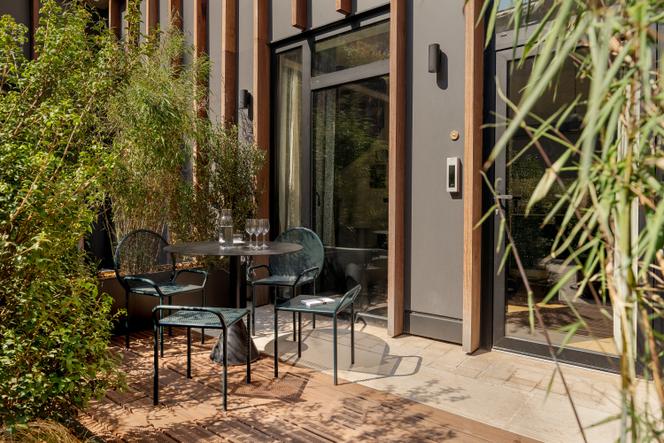


The elegant five-story building, with a long balcony and white wooden shutters, is located on the chic Avenue de Lowendal, a stone's throw from Les Invalides, in Paris's wealthy 7th arrondissement. From the outside, you'd think it was a residential building – which it was until very recently. However, for the past month, it has been home to an inconspicuous form of hotel called La Sève. There's no reception desk and no prominent sign outside. On every floor are luxurious hotel apartments, tastefully decorated and supervised by a "hostess." You can book each of them, with their three or four bedrooms, for around €1,500 a night on rental sites such as Booking.com or Airbnb. Or you can just rent a room with its own bathroom (around €300), and share the living room and kitchen with another traveler. Staff clean and serve breakfast, and the host can call in a chef on request.
The building was purchased in 2020 by Guillaume Lange, a Paris-based financier who runs a family office in which he manages the fortunes of 200 clients. The former partner at Accenture, who has a well-filled-in address book, could have exploited the property in the traditional real estate market. Instead, he opted for the riskier but more profitable apartment hotel market, which is booming in the capital. In addition to the one on Avenue de Lowendal, he has just bought, with investors, three other buildings in the 8th, 12th and 13th arrondissements to develop the same concept under the common brand 1.75. The four transactions exceeded €50 million. Other acquisitions are in the pipeline.
Lange is not the only one to enter the "apartment hotel" niche, led until now by Citadines, Adagio and Appart'City residences, in highly standardized, much less expensive versions. The new players in the hotel world, which have multiplied in the space of five years – Edgar Suites, 1.75, Madeho, Groupe WS, My Maison in Paris, Black Door, Sweet Inn, HighStay – are aiming to renew the genre, with more luxurious offerings, trendy decor and various services. They are tapping into a new demand among travelers for accommodations with kitchens and living rooms. "These concepts are well suited to families, but also to business travelers and groups of friends. In our lives, boundaries are less rigid, we can work and be on vacation in the same place, and these hybrid products respond well to this," said Vanguelis Panayotis, a consultant specializing in hotels at MKG.
In contrast to the historic model of apartment hotels, which were sold off to private individuals on the basis of tax breaks and supervised by a property manager, these new players buy entire buildings en bloc – or, in some cases, rent and fit them out. These may be former offices, hotels or residential buildings, although in the case of the latter, these operations are complicated: The owner must compensate for the square meters lost by purchasing "marketing rights," which are used to create housing in the same district.
You have 66.58% of this article left to read. The rest is for subscribers only.
